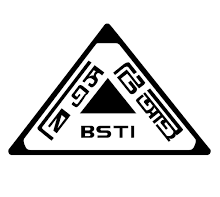In a major step toward promoting high-quality production in Bangladesh’s industrial sector, the Bangladesh Standards and Testing Institution (BSTI) has announced a significant reduction in calibration service fees.
The decision follows growing demand from service recipients and aims to encourage greater use of standardized measurements across industries, healthcare, and research institutions.
The revised fees apply to services provided by six accredited laboratories under BSTI’s National Metrology Laboratory (NML). The implementation of the reduced rates comes in the wake of a decision taken at the institution’s 41st Council Meeting, held recently, according to a release.
With this fee reduction, industries, educational and research organizations, testing and calibration facilities, as well as government and private hospitals and diagnostic centers, will now be able to access international-standard calibration services at less than half the previous cost.
This change is also expected to benefit LPG and LNG bottling plants and other facilities that rely on precision instruments.
BSTI’s six accredited labs cover a wide range of calibration services essential to both industrial and service sectors. These include the calibration of weighing equipment, measuring tapes and rulers, micrometers, calipers, pressure gauges, thermometers, and electrical instruments such as voltmeters, ammeters, and frequency meters. Items ranging from blood pressure monitors and ovens to autoclaves and digital timers are now being calibrated at significantly lower prices.
According to BSTI, the laboratories offer services for mass, length, volume, temperature, pressure, electrical measurements, and time-frequency instruments, all in compliance with international standards. This enables users to ensure accuracy, reliability, and quality in their operations, supporting both production and public safety.
Officials expressed confidence that the reduced fees will make calibration services more accessible and affordable, encouraging broader adoption of standardized practices. This, in turn, is expected to lead to higher-quality domestic products, improved consumer confidence, and a stronger position for Bangladeshi goods in global markets.
By making these services more cost-effective, BSTI hopes to foster a culture of precision and quality in Bangladesh’s growing industrial landscape—ultimately reinforcing the nation’s commitment to excellence in production, research, and public services.

